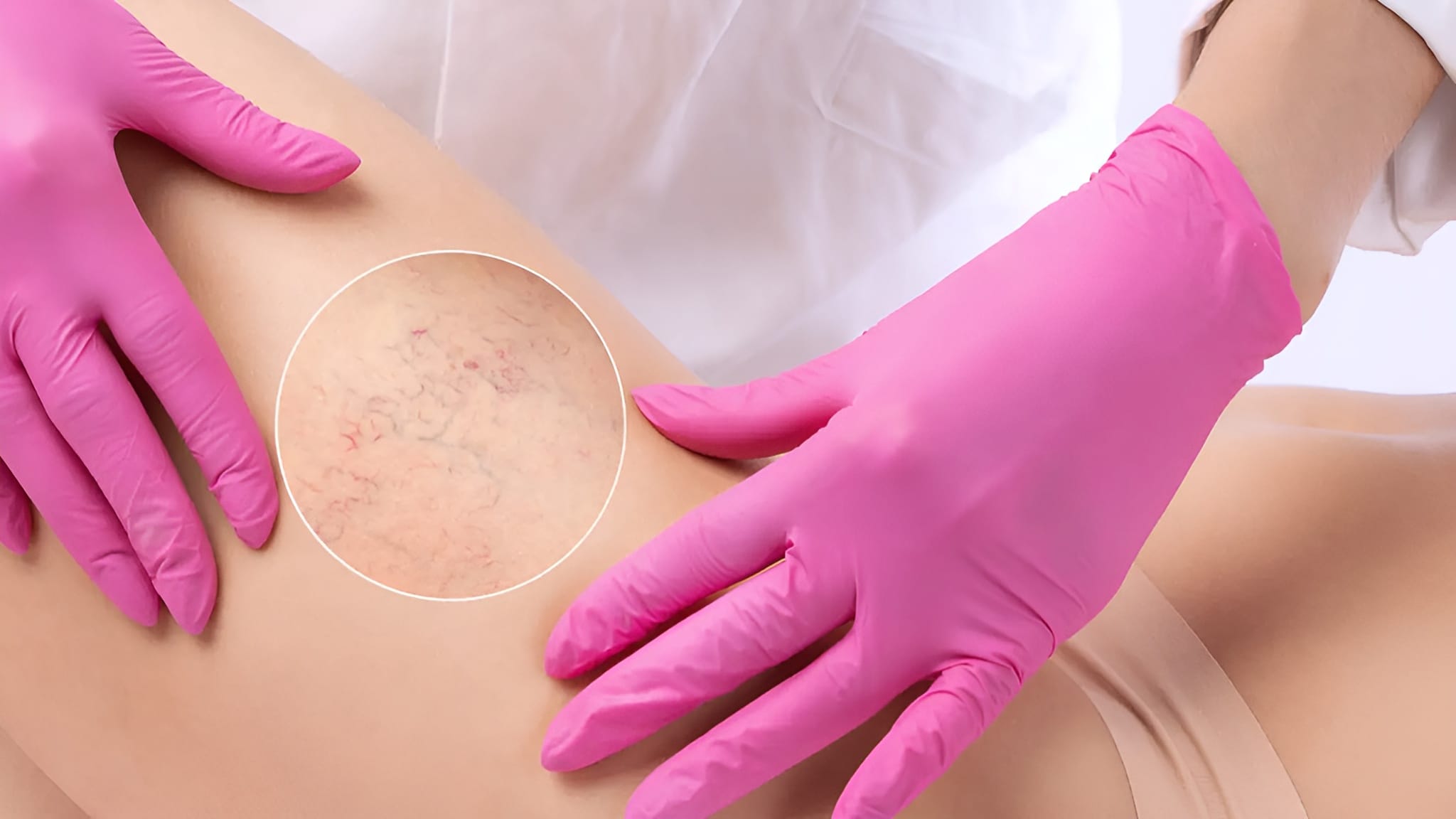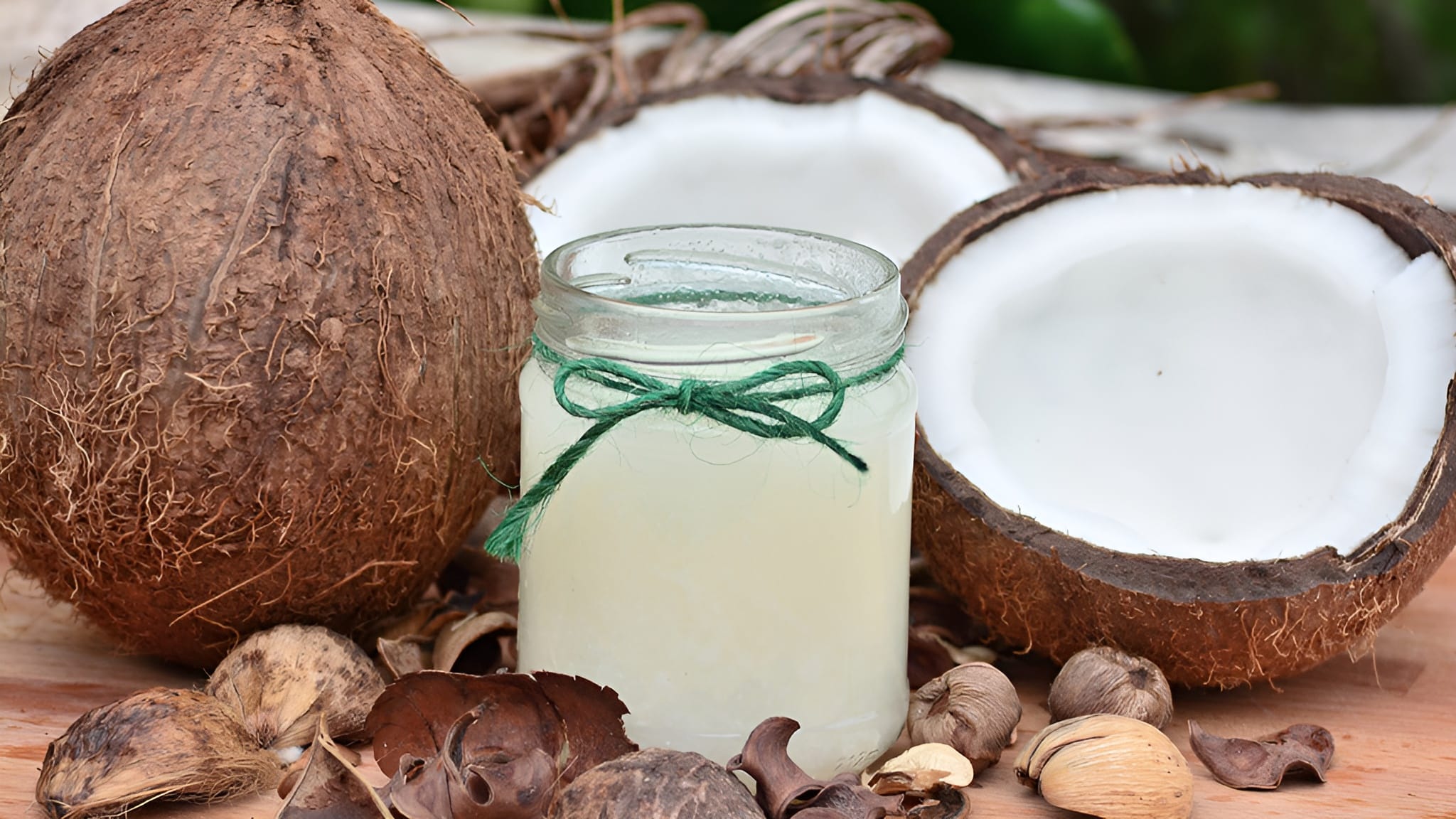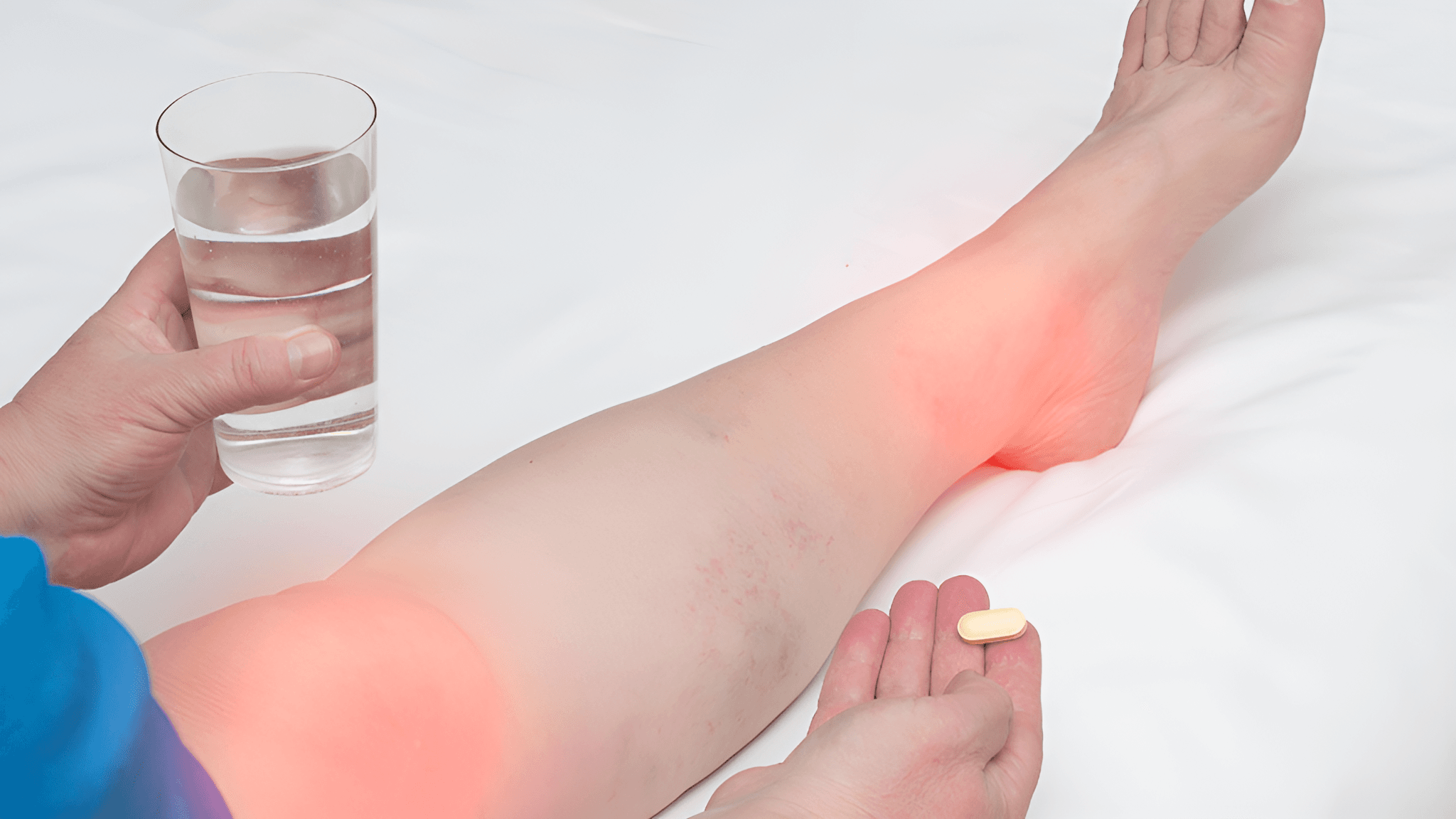If you’re looking for ways to reduce the appearance of spider veins or prevent new ones from forming, you might have heard about vitamin K cream for spider veins. But does it really work?
Spider veins, those tiny, web-like clusters of blue or purple veins that often appear on the legs, can be a cosmetic concern for many people. While they’re usually harmless, unlike their larger counterparts, varicose veins, spider veins can still be unsightly.
Spider veins are not to be confused with varicose veins. We have a different article on the best vitamins for varicose veins as well.
Table of Contents
Understanding Spider Veins
Before we dive into the potential of vitamin K cream for spider veins, let’s understand what causes these pesky veins in the first place.
Spider veins, like varicose veins, occur when blood flow in the veins is disrupted. Normally, blood flows in one direction—towards the heart. But when valves within the veins weaken, blood can flow backward and pool in the smaller capillaries, causing them to dilate and become visible as spider veins.
Several factors can contribute to the development of spider veins:
- Obesity
- Hormonal changes (including those caused by birth control)
- Prolonged sitting or standing
- Heredity
- Pregnancy
Spider veins are more common in women, likely due to the hormonal fluctuations associated with pregnancy and menopause.
You may also find some of our suggestions from the vitamins for blood circulation article to be helpful.
Vitamin K and Spider Veins: The Potential Benefits
Vitamin K is well-known for its role in blood clotting. This has led to the idea that vitamin K cream for spider veins might be beneficial.
- Strengthening Vein Walls: Some proponents suggest that vitamin K can help strengthen vein walls and improve their appearance. Elliott Milstein, president of a company that manufactures vitamin K creams, claims that their products contain vitamin K oxide, which is more effective in repairing blood vessels.
- Reducing Blood Leakage: One theory is that topical vitamin K can penetrate the skin and interact with the affected capillaries, promoting clotting and reducing blood leakage into the surrounding tissues.
To complement this, botanicals such as healthy blood flow with Ginkgo + Ginseng can improve nitric oxide signaling, helping veins relax and encouraging better circulation overall.
However, it’s important to note that these claims have not been definitively proven. More research is needed to confirm the effectiveness of vitamin K cream for spider veins.
Antioxicants such as Vitamin C can also be very helpful for repairing damage, including to vein walls.
Exploring Other Treatment Options
While vitamin K cream is readily available and relatively inexpensive, there are other treatment options to consider:
- Sclerotherapy: This involves injecting a solution into the spider veins, causing them to collapse and fade away.
- Laser Therapy: Laser treatment uses targeted light energy to heat and destroy the affected veins.
These procedures tend to be more expensive than topical creams, but they may offer more noticeable and lasting results.
Taking a Holistic Approach
If you’re concerned about spider veins, consider a combination approach:
- Vitamin K Cream: While its effectiveness is still being investigated, vitamin K cream might offer some benefits and is generally safe to try.
- Lifestyle Changes: Incorporate regular exercise, avoid prolonged sitting or standing, elevate your legs when resting, and maintain a healthy weight to improve circulation and reduce the risk of developing more spider veins.
For full-spectrum support, formulas that combine bone/vascular support in one—like vitamin K2 and D3 together—help reinforce both cardiovascular health and skeletal strength.
The Bottom Line
While more research is needed to confirm the effectiveness of vitamin K cream for spider veins, it may be a worthwhile option to try, especially in conjunction with lifestyle changes. If you have concerns about spider veins or are considering treatment options, consult your doctor for personalized advice.
Speaking of lifestyle, circulation issues can have a serious impact on sex life. We have an article on supplements for sexual health which might be relevant.
FAQ
Not likely. It may help the appearance (bruising/discoloration) of tiny surface vessels, but established spider veins usually need in-office treatments (sclerotherapy/laser) for real clearing.
Apply a thin layer to clean, intact skin 1–2× daily for 6–8 weeks. Patch-test first. Avoid broken skin and pair with daily SPF on exposed areas.
If you respond, you’ll typically notice subtler color and smoother look in 4–8 weeks. No change by 8–12 weeks? Consider alternatives or a consult.
Topical vitamin K has minimal systemic absorption, but if you use anticoagulants or have a bleeding/clotting disorder, talk with your clinician before regular use.
Spider veins = small, red/blue, web-like, usually cosmetic. Varicose = larger, bulging, can ache or swell. Topicals won’t treat varicose veins; see a vascular specialist if you have pain, swelling, heat, or skin changes.
Frequent movement breaks, leg elevation, compression stockings, healthy weight, gentle massage, and daily sunscreen on exposed legs. For skin tone/texture, consistent moisturizing and gentle exfoliation help the overall look.




